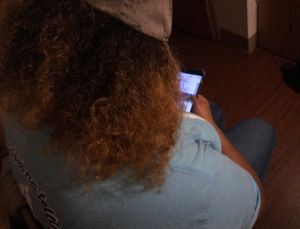Twitter, Instagram, Snapchat and many other social media platforms tend to take up a lot of people’s time. According to a study done on social media usage in the United States, about 81 percent of Americans have some sort of social media profile. This amount of social media usage is directly linked to lack of sleep. The National Sleep Foundation says that the blue light that your phone emits can affect how your body produces melatonin.
Melatonin is the hormone that helps you sleep. In addition to affecting your sleep, excessive social media use may be associated with high anxiety and depression. So, if 81 percent of American people use social media, what percentage of Americans is at risk or already has anxiety or depression?
In an age where everything is digital, it may be quite hard to stay away from social platforms. Job applications, ads and even doctor’s appointments can be made online. But is being active on social media worth the price of anxiety and depression? Research has shown that nearly one in five college students suffer from depression or anxiety.

Many students feel the pressure of putting on a good face for social media. For me, I have in many instances felt pressure to put on a facade online. Sometimes when I felt the most down and uninspired is when I posted quotes about being motivated. When I was at my saddest times, I would post videos of me smiling and laughing with friends.
Could it be that the social media usage itself accompanied by academic stress and social pressure takes a toll on a student’s mental health? An article by TIME Health shows a survey done by RPH and Young Health Movement, detailing that anxiety, depression and loneliness are all direct causes of excessive use of social media.
A social media detox may be helpful for some people. In relation to these studies that suggests that social media can take a strain on your mental health, a quick cleanse from social platforms could be beneficial. If excessive use has been shown to cause high levels of anxiety, maybe inactivity will reduce anxiety.
In an article on how social media effects mental health, Jacob Barkley, a psychology professor at Kent State University, says that less activity on social media may “help some people mitigate their anxiety.” All in all, if you’re liking, swiping, messaging or tweeting make sure to do it responsibly put your mental health first.


